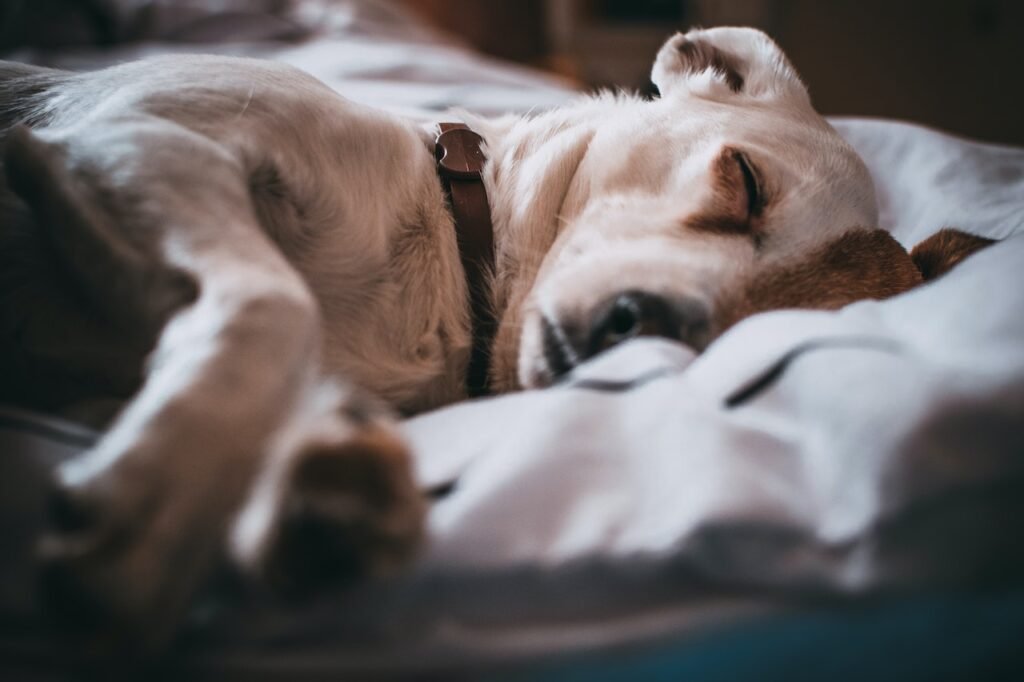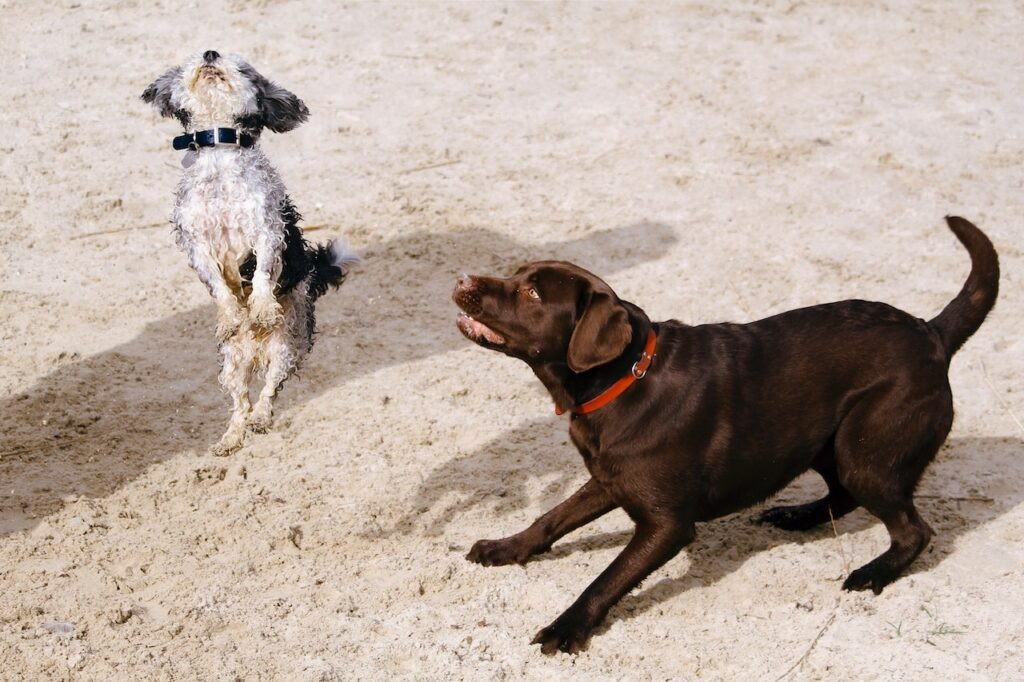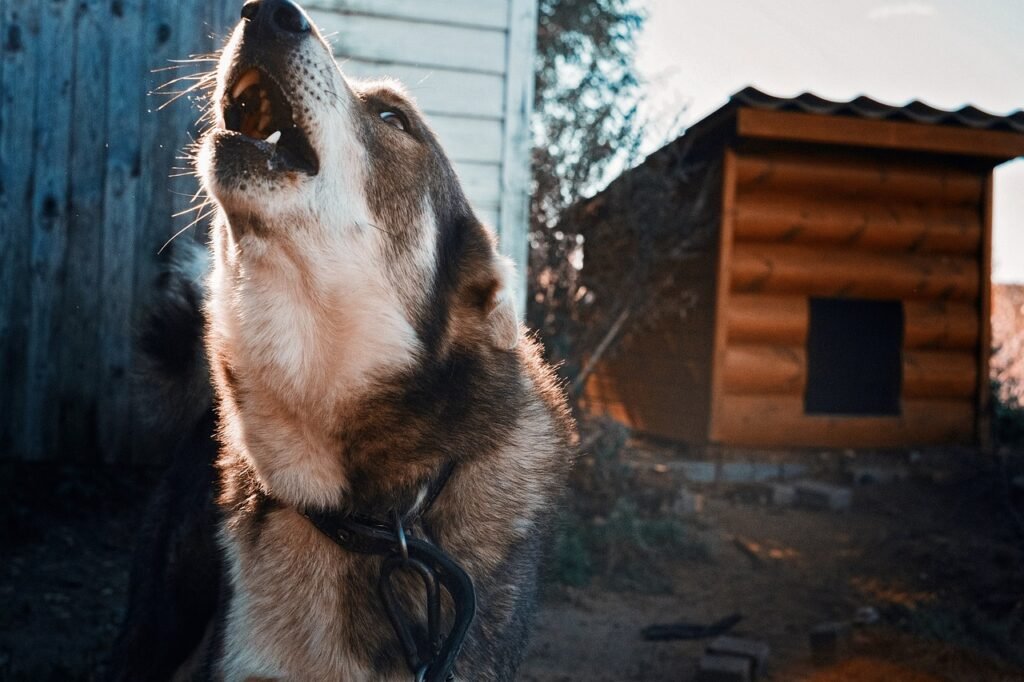Have you ever laid down next to your puppy, hoping to catch a few winks yourself, only to notice that their tiny chest is fluttering faster than a hummingbird’s wings? You’re not alone. Many fur-parents scratch their heads (or more likely, Google) over this very question: Why does my puppy breathe so darn fast when they’re asleep?
Well, pour yourself a cup of tea, and get cozy; we’re diving deep into the canine dreamland.
Rapid Eye Movement (REM) Sleep
Puppies, much like humans, go through different stages of sleep. One of these stages is the Rapid Eye Movement (REM) phase, where the brain is as active as when it’s awake. During REM:
- Eyes dart back and forth (yes, just like us!)
- Dreaming occurs (chasing those imaginary squirrels, perhaps?)
- Heart rate increases and so does breathing.
Imagine it this way: if your puppy is dreaming of sprinting through a meadow, their sleeping body might just try to keep up!
Their Body is Growing… Fast!
Puppies are like those magic sponge toys – you know, the ones that expand exponentially when you toss them in water? Except, puppies don’t need water, just food, and lots of sleep.
- Rapid growth requires more oxygen.
- Their little bodies and organs are working overtime.
- Thus, a faster respiratory rate is sometimes just their way of catching up.
Think of it as their body’s way of saying, “I’m leveling up, give me a sec!”
Breeds and Their Breathing Quirks
Is your puppy from a breed known to have a snout as flat as a pancake or a nose longer than a hiking trail? Breed differences can explain a lot.
- Brachycephalic breeds like Bulldogs and Pugs often breathe faster due to their compressed nasal passages.
- Larger breeds might have slower respiratory rates as adults but breathe faster as puppies.
It’s like comparing a race car to a bicycle – they have their own speeds!
Relax, They’re Just Hot
Ah, the simplicity of this reason! Dogs don’t sweat like we do, remember?
- Panting is their main cooling mechanism.
- While they might not be panting heavily during sleep, their respiratory rate can still increase if they feel warm.
It’s their internal fan system; imagine you’d need one too if you were wearing a fur coat 24/7.
When Should You Worry?
We’ve covered the normal, but what about the not-so-normal? Here are some signs that might indicate a need for a vet visit:
- Consistent and heavy panting during sleep
- Signs of distress or restlessness
- Coughing or other unusual noises
- Changes in behavior or appetite
Remember, you know your fur-baby best. If something feels off, it’s always good to get a second opinion.
Tips to Ensure Peaceful Puppy Slumbers
For those extra concerned or simply wanting to be proactive, consider:
- Maintaining a cool environment – Fans or AC can be a puppy’s best friend.
- Ensuring they’re hydrated – Fresh water should always be available.
- Regular vet check-ups – To catch potential issues early.
A well-rested puppy is a happy puppy. And isn’t that the dream?
Conclusion:
So, why does your puppy breathe fast while sleeping? In most cases, it’s perfectly natural and a part of their growth or dream cycle. But as with everything, moderation is key. Keep an eye out, and trust your instincts. After all, at the end of the day (or night), our little furballs rely on us to keep them safe, sound, and ready for another day of adventures. 🐾
Key Takeaway: Puppies breathe fast during sleep mainly due to REM sleep, rapid growth, their breed, or because they’re hot. It’s mostly normal, but always monitor for consistent or distressing changes. When in doubt, consult with your vet. Happy dreaming, pups!



